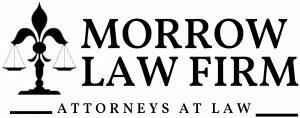
Understanding Personal Injury Claims: Key Questions to Consider Before Pursuing Legal Action
Personal injury law exists to protect individuals who suffer harm due to negligence, recklessness, or misconduct. However, not every injury results in a viable legal claim. Before initiating a lawsuit or contacting an attorney, it is important to consider several critical factors that determine whether a case has legal standing.
Determining whether a personal injury claim is valid involves more than just the presence of pain or a damaged vehicle. Louisiana law, like that of most states, requires clear proof of fault, measurable damages, and a connection between the negligent act and the injury sustained. Without meeting specific legal standards, a claim may be dismissed before it even begins.
William P. Morrow, attorney at Morrow Law Firm in Opelousas, Louisiana, emphasizes the importance of initial case assessment. “Not every accident is legally actionable,” said Morrow. “The presence of an injury is not enough on its own. The law requires a series of conditions to be met, and those conditions must be carefully evaluated before proceeding.”
Morrow Law Firm—led by William P. Morrow, John Michael Morrow, Jr., and Stephen M. Morrow—handles a broad range of injury cases, including those tied to job-related incidents and on-the-clock travel accidents. In many of these situations, prospective clients are unsure whether their circumstances rise to the level of legal liability. Asking the right questions early can help clarify whether further legal action is appropriate.
The following considerations are commonly used to evaluate whether a personal injury claim is likely to succeed:
1. Was there clear fault or negligence involved?
A valid personal injury claim typically requires evidence that someone else failed to exercise reasonable care. This could include a distracted driver, a negligent property owner, or an employer ignoring safety protocols. If the incident was purely accidental or caused by the injured party’s own decisions, fault may not be clearly assignable.
2. Was there a duty of care owed to the injured party?
Legal duty must exist between the injured individual and the party responsible. For example, business owners have a legal duty to keep their premises reasonably safe for customers. Employers are expected to provide safe working conditions. If no duty of care existed under the law, there may be no grounds for a claim.
3. Can the injury be directly linked to the incident?
Medical documentation and timing are crucial. A claim must show that the injury sustained is a direct result of the specific accident. Pre-existing conditions or injuries that cannot be tied to the incident may weaken or invalidate a claim. Immediate medical attention and consistent treatment records are key to establishing this connection.
4. Are there measurable damages?
The presence of quantifiable damages—such as medical bills, lost income, or permanent disability—is necessary. Emotional distress or pain without documented financial impact may not be sufficient for legal compensation. A successful claim typically requires documentation that demonstrates the extent of physical, financial, and emotional harm.
5. Was the claim filed within the legal timeframe?
Louisiana imposes strict deadlines on personal injury claims. In many cases, the time limit is just two years from the date of the incident. Failing to act within that timeframe may result in the permanent loss of legal rights, regardless of the severity of the injury.
6. Is there evidence to support the claim?
Witness statements, photographs, video footage, police reports, and medical records all contribute to building a strong case. A claim lacking supporting evidence may struggle to withstand scrutiny, even if the injured party’s account is credible. Gathering evidence early is often critical to a successful outcome.
7. Was the injured party engaged in work-related duties at the time?
In workplace injury cases, the nature of the activity at the time of the incident matters. Commuting, running errands for an employer, or working off-site can all affect whether an injury qualifies under workers’ compensation laws. Determining whether the injury occurred “within the course and scope of employment” can dramatically shift the legal options available.
Understanding these core elements helps ensure that legal resources are directed toward claims that meet the standards of Louisiana law. This also prevents unnecessary frustration or wasted effort on cases unlikely to succeed due to lack of evidence, missed deadlines, or unclear liability.
“Every injury deserves compassion,” said Morrow. “But not every situation meets the legal threshold for action. It’s important to begin with facts—not just feelings—and work from there.”
Before filing a lawsuit or seeking compensation, individuals are encouraged to review the facts of their situation through a structured lens. Legal claims are built on evidence, timing, and clearly defined relationships between cause and effect.
About Morrow Law Firm
Morrow Law Firm is based in Opelousas, Louisiana, and is led by William P. Morrow, John Michael Morrow, Jr., and Stephen M. Morrow. The firm focuses on matters involving personal injury, workplace-related claims, and liability disputes. With decades of experience handling complex cases under Louisiana law, the firm approaches each case with clarity, precision, and a commitment to due process.
Morgan Thomas
Rhino Digital, LLC
+1 504-875-5036
email us here
Visit us on social media:
Facebook
Distribution channels: Culture, Society & Lifestyle, Human Rights, Insurance Industry, Law
Legal Disclaimer:
EIN Presswire provides this news content "as is" without warranty of any kind. We do not accept any responsibility or liability for the accuracy, content, images, videos, licenses, completeness, legality, or reliability of the information contained in this article. If you have any complaints or copyright issues related to this article, kindly contact the author above.
Submit your press release

